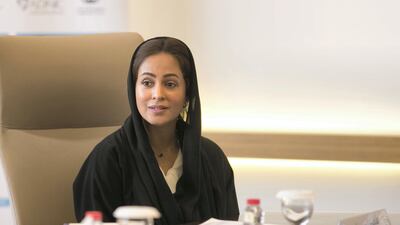There are more than 400 genetic disorders in the UAE - and health bosses are set to welcome experts from across the globe to the country to help show genes don't have to 'control your destiny'.
Dubai will host the seventh annual International Genetic Disorders Conference on November 9 and 10, which aims to bring together regional and world experts in the field of genetics to discuss the latest advances in detection and management of genetic diseases.
A mandatory pre-marital screening has already brought down the number of deaths caused by thalassemia, a genetic blood disorder which causes severe anemia, from eight patients in 2013 to a single patient in both 2016 and 2017.
The UAE has one of the highest rates of thalassemia carriers in the world at 8.5 per cent - almost one in ten people in the country.
The Dubai Health Authority will soon implement the human genome project as part of the Dubai 10X initiative. The project will use automated learning and artificial intelligence to issue reports that support research, forecast future disorders and epidemics, and plan preventive measures.
“Prevention of genetic diseases, early detection and management are key focus areas that can drastically reduce the incidence of these diseases and better manage the quality of life of those living with the condition,” Humaid Al Qutami, Director-General of the DHA, said.
According to research, the most common disorders are blood complaints such as thalassemia, sickle cell, anaemia, haemophilia and G6PD deficiency.
Dr Maryam Mattar, founder and chairwoman of the Emirates Genetic Diseases Association, said: “There is no doubt that awareness and early screening is fundamental in our fight against genetic disorders."
The cost of genetic screening of thalassemia is Dh120, and the cost of treating a patient is Dh35,000 per annum. Similarly, the risk of neural tube defects, can also be prevented by a three month course of folic acid, which costs approximately Dh30, whereas treating a neural tube defects case costs Dh730,000.
Dr Mattar said: "Prevention is key in reducing the impact of genetic disorders, socially and economically, and is a long-term sustainable solution, especially in the UAE where a high per cent of the population is under 30 years of age."
She said that it is important for the community to understand that having certain genes does not mean that the person will develop the disease.
“Genetic testing and newer technologies provide an opportunity to understand our genes better and allow us to take action to help subside those genes by following a healthy lifestyle, sleep and exercise pattern. In some cases, it is important to undergo early medical intervention.
“However, inherited genetic mutation does not largely decide our destiny anymore. Advances in genetics has transformed preventive medicine for the better. Technology such as next-generation sequencing has uncovered the genes responsible for more than 50 per cent of all rare diseases,” said Dr Mattar.
_______________
Read more:
Dubai Genome labs to start collecting DNA samples
UAE Human Genome Project director hopes DNA profiling will be at centre of clinical care
The pros and cons of a DNA test to determine potential health issues
_______________
Established in 2004, the association has screened 33,211 male and female Emiratis on the three most common genetic disorders and have a DNA database of more than 9,000 Emiratis to be used for research.
According to the Global Genes Organization, there are approximately 7,000 different types of rare diseases and disorders, with more being discovered each day. Approximately 50 per cent of the people affected by rare diseases are children.
Dr Mattar said that the scientific programme of the conference will focus on latest innovations, important discoveries in genomics and advancements in the knowledge of how genetics affect human health and disease.
The conference will welcome more than 40 international, regional and local genetic experts from leading institutions and research organizations to address the two-day scientific programme.
For full details, visit the conference website, www.uaegdaconference.com

